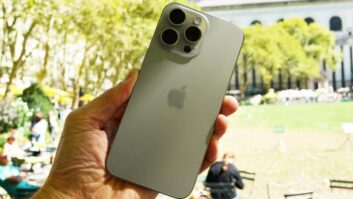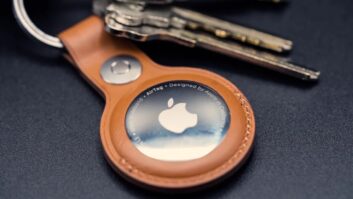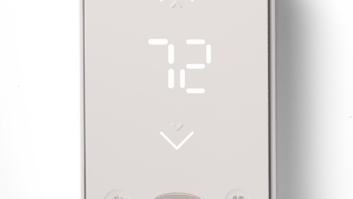New York – Wireless carriers, handset vendors and consumers are the winners
when carriers strike deals to offer select handsets on an exclusive basis for a
period of time, vendors and carriers claim.
In comments
filed with the Federal Communications Commission (FCC), carriers and
vendors contend the long-standing practice of offering exclusive products is a
best-marketing practice commonly used by many industries. In the case of the
wireless industry, it accelerates handset innovation, promotes handset
competition, and incentivizes carriers, vendors and participating retailers to
launch aggressive marketing campaigns to boost awareness of new products, they
said.
In fact, AT&T
Wireless contended in its comments, “Virtually every significant wireless
innovation reaches U.S. consumers
first.”
Counter-intuitively,
exclusive deals also help drive down the consumer’s price of an exclusive
handset, they contend. Exclusivity arrangements usually include volume
commitments and guaranteed promotion levels by carriers, helping vendors reduce
their risk, defray R&D costs and deliver economies of scale, marketers told
TWICE.
As one major master
agent told TWICE, “The old way was that manufacturers didn’t know which phones
would sell well, so their prices were initially high to defray R&D costs.”
Retailers would also limit their initial inventory of a new phone to wait until
the price dropped. The new way, he said, “not only drives costs down but also
increases choices.”
“Manufacturers do
the calculus” to determine the benefit to them of selling a phone exclusively to
one carrier or to multiple carriers, the agent continued. Although all of the
savings could pass to the carrier’s and vendor’s bottom lines, he suspects
market-share competition forces carriers to pass on some of the saving to
consumers.
Key analysts,
including TBR analyst Ken Hyers, concur in many of these views. “It’s a
practice that has befitted operators, and manufacturers and arguably befitted
consumers,” he said.
Some wireless-industry
veterans, however, aren’t convinced of the consumer benefit. As an executive for
one distributor pointed out, “If availability is more open, it’s better for the
consumer because they don’t have to change networks to get a desirable phone.”
The master agent,
however, did not view churning to a new network as a major disadvantage for
consumers, given the potentially lower cost of exclusive models that offer
something distinctive. He also pointed to the diversity of handsets, including
exclusive handsets, available from every carrier. “Everyone has alternatives,”
he claimed.
David Sprosty, a
wireless executive formerly with Best Buy and the MobilWorks mobile-electronics
chains, agreed that “exclusive products are not necessarily the best for
consumers,” but “creating awareness sometimes requires an exponential effort,” he
said. Pointing to AT&T’s iPhone and Verizon’s BlackBerry Storm, Sprosty
questioned whether the carriers would have invested as much in creating
awareness if other carriers offered the same models.
Getting
scrutinized: Whatever
their merits for consumers, exclusive handset deals are under scrutiny by the
FCC and, reportedly, by the Department of Justice, which is also said to be taking
an initial look at a wide variety of allegedly anticompetitive telecommunications
industry practices, including practices by landline and wireless carriers. The
FCC solicited comments on the practice but has no timetable for deciding whether
to launch hearings to decide whether to ban the practice, a spokesperson said.
The debate arose earlier
this year when rural carriers, through the Rural Cellular Association (RCA),
complained to the FCC that exclusive contracts prevent them from offering the
latest, cutting-edge handsets to consumers. Should the FCC decide to act,
however, the impact will extend beyond rural carriers. Regional carriers such as
MetroPCS and Cricket and nationwide MVNOs could get quicker access to key handsets.
A ruling could also force Apple to offer its iPhone to other U.S. GSM carriers
and prevent vendors such as Palm from launching its planned Pre only through a
single carrier before offering it to others.
Debate expands: Since the rural carriers complained,
consumer groups have piled on to call for the end of exclusive handset deals,
as have regional prepaid carriers MetroPCS and Cricket. The organizations
include Media Access Project
(MAP), Consumers Union,
Free Press, Consumer Federation of America, New America Foundation and Public Knowledge.
They filed comments on exclusivity and other allegedly anti-competitive
practices in conjunction in connection with the FCC’s preparation of an annual
wireless-market competitiveness report.
In their comments,
rural and regional carriers contend that exclusivity periods typically end long
after a handset is obsolete. “Many of RCA’s member carriers simply do not have
access to handsets that are less than two years old – an eternity in the
wireless industry,” the association said. With equal access to handsets, the
rural carriers contend, they would be able to compete better with bigger
carriers, generate higher revenues, and pour the additional profits into
network expansion and improvements. Only one out of the top 10 selling phones
is not part of an exclusive carrier-vendor deal, the association said.
Exclusive deals
between T-Mobile and handset vendors have “compromised” the ability of
Cincinnati Bell Wireless to get an adequate inventory of 3G handsets using the
AWS (Advanced Wireless Services) band, RCA said. That carrier’s “ability to
deliver advanced broadband wireless services to consumers is severely hampered
by the limited number of 3G handsets available using the AWS spectrum,” the
association said.
“The vibrant
competition that these parties claim exists in the U.S.
wireless handset market is limited almost exclusively to the nation’s four
largest national carriers,” the association added. Those carriers “can
distinguish themselves in the marketplace in a variety of ways – e.g., lowest
price plans, best coverage, superior customer service, unique services and
features – and still be successful in the marketplace without resorting to
exclusivity arrangements.”
Rural carriers also
assert that handset vendors would prefer not to enter into exclusive contracts
but are forced into them because of “the dominant market power exerted by the
nation’s largest wireless carriers” These suppliers, RCA said, “have told RCA
members that they would actually prefer to be able to sell their handsets to as
many carriers as possible so as to increase sales.”
In the future, the
RCA said it’s worried that the nation’s largest carriers “may decide to steer
handset manufacturers to support only the particular frequencies, air
interfaces and spectrum bandwidths held by the largest carriers.’ As a result,
“this could limit the ability of small, rural and regional carriers to deploy
these handsets on their frequencies.”
A former FCC chief
economist, William Rogerson, contended that handset selection helps drive
competition among carriers and that exclusivity reduces that competition.
“Competition over attributes such as service quality and coverage will be
dulled when carriers instead are able to compete by denying their competitors
access to handsets and prohibiting their customers from migrating their
handsets to a competing carrier,” he said in an FCC filing.
Large carriers are
in a position to do so, the smaller carriers contend, pointing to the FCC’s own
statistics, which show the four largest carriers accounted for 92.4 percent of all
wireless subscribers at the end of 2007. Large-carrier market power is even
higher when considering that Verizon Wireless accounted for more than 55
percent of CDMA subscribers at the time and AT&T Wireless accounted for
more than 70 percent of U.S. GSM subscribers, according to comments by regional
prepaid carrier MetroPCS.
Innovation without
contracts: In its
comments, regional carrier MetroPCS also contended that the end to exclusive
contracts would not impede product innovation. New devices such as the iPhone and
BlackBerry Storm “are a significant driver of customer activation,” so “it
stands to reason that wireless companies would continue to encourage the
development of new devices as a way to attract new customers, whether they were
the exclusive provider of the device or not.” Carriers without access to such
handsets “are disadvantaged.”
Vendors will also
continue to innovate in the absence of exclusive agreements, MetroPCS
contended. “It strains credulity
to assume that RIM, for example, developed the BlackBerry Storm due to its
exclusive agreement with Verizon Wireless, rather than of its own desire to remain
relevant in the wireless handset marketplace and to compete with the iPhone.
RIM responded to the iPhone with the Storm because, as a rational market
participant, the company recognized the most fundamental of business truths – innovate
or perish.”
Major carriers and
vendors fired a volley of arguments to convince the FCC to leave well enough
alone. See How Major Carriers, Vendors View Exclusivity (MAKE A LINK
to 15cellcontracts209)
Also see Retailers
See Benefits In Exclusives (MAKE
A LINK to 15cellcontracts309)













